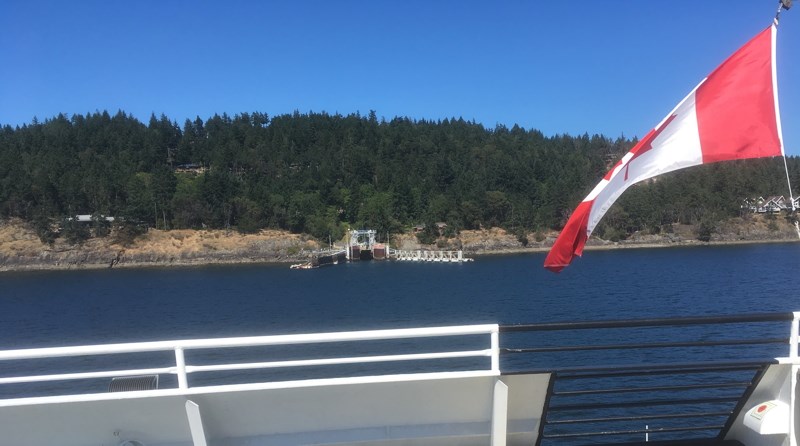When Leeanne Mueller pulled up to the Pender Island ferry terminal Wednesday, she knew she wasn’t a priority passenger.
She didn’t get sent to the lane reserved for residents with medical appointments in Victoria. Nor was she in the one where essential-service workers line up.
Rather, she went to the lane for everybody else, the ones who take their chances. Still, having arrived two hours before her sailing and being fourth in line, she felt confident of getting on board.
Nope. When the Queen of Cumberland arrived, much of the deck space had already been filled with vehicles from Saturna, Galiano and Mayne islands. None of the general-loading cars made it onto the ferry.
Such is life now that B.C. Ferries has scaled back service to the southern Gulf Islands during the pandemic.
Even with tourists and weekend warriors discouraged from travelling to places such as Pender, there isn’t always enough room on the boat for the island’s 2,200 residents, and they’re getting frustrated.
They’ll have to endure this for a while longer. On Friday, B.C. Ferries announced that the reduced southern Gulf Islands schedule, introduced April 10, will be extended at least until June 8.
The run between Tsawwassen and Long Harbour on Salt Spring Island will remain suspended, too.
There was a ray of hope for those seeking change, though. “We are aware of concerns and pinch points in this temporary service to the southern Gulf Islands, and we are working with the province to change the service to something closer to normal as soon as practicable,” B.C. Ferries said.
The reality for the corporation is that this is just one of the headaches it must deal with while sailing, figuratively speaking, through uncharted waters. Reductions in service reflect a combination of factors. The provincial government wants to keep a lid on unnecessary travel, the goal being to stop the coronavirus from spreading while keeping supply lines open. Transport Canada, in the name of physical distancing, has ordered passenger capacity cut by half. Also, there’s no point running ferries where there’s little demand; throughout the system, ridership has plunged and B.C. Ferries is losing close to a million bucks a day.
Those in charge are trying to get the balance right, but it’s not as though there’s a playbook that says “here’s what to do in a pandemic.”
They are trying to keep up with changing conditions, though. Note that the Horseshoe Bay-Departure Bay service, docked since early April, will resume June 3. “Gradually, slowly and carefully, we’ll increase our levels to meet demand,” says B.C. Ferries’ Deborah Marshall.
None of that offers immediate comfort to people like Mueller, though. When she tried to catch that morning ferry, it was with the idea of having just enough time to hit a couple of Victoria wholesalers before making the return sailing later in the day. She had been restricting her travel, hadn’t made the trip in six weeks, but needed to resupply her two businesses on Pender.
“After today’s experience of missing the sailing despite doing everything humanly possible to make the boat, I am at a loss as to what steps I can take next in order to continue with my work,” she wrote the corporation.
After learning that one of Mueller’s businesses involves selling food — she makes sushi, salad rolls and spring rolls — B.C. Ferries told her she could line up with essential-service traffic. Still, when she did so on Thursday, she showed up a couple of hours early again, just to make sure she got on board. Being deemed essential doesn’t guarantee there’ll be deck space available.
And solving her personal situation didn’t solve the larger problem, which is that for Pender residents catching the ferry has become a game of musical chairs, a competition in which neighbours must show up earlier and earlier to nip in front of one another for one of the available spaces. They look at each other askance, wondering whether the neighbour in the essential-service line really deserves to be there, or if the one with the medical appointment couldn’t have waited for a less-busy sailing.
B.C. Ferries gets the stink-eye, too, for failing to stop the boat from filling up with traffic from the first islands along the route. Some people lose their tempers, unloading — unfairly — on frontline terminal staff. Got to fix this, Mueller says. “It’s frustrating.”



